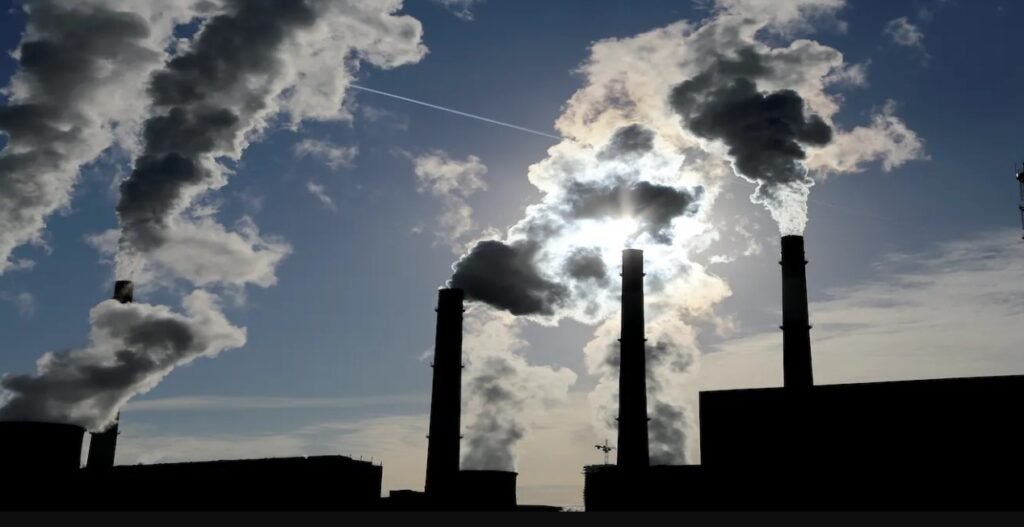The COP28 climate summit in Dubai has been marked by protests and criticism against the fossil fuel industry, which is accused of undermining the global efforts to limit the rise of temperature to 1.5 degrees Celsius above pre-industrial levels. Activists, scientists, and some governments have called for a rapid phase-out of coal, oil, and gas, while the host country and other major oil producers have promoted the use of carbon capture and other technologies to reduce emissions.
On Sunday, hundreds of climate activists staged a demonstration outside the COP28 venue, chanting slogans such as “Kick them out” and “No more fossil fuels”. They were referring to the record number of fossil fuel lobbyists who have been granted access to the summit, representing about 40 percent of the total non-governmental participants. The protesters said that the fossil fuel industry has a conflict of interest and should not be allowed to influence the negotiations.

The activists also criticized the UAE for hosting the summit, saying that the country is one of the world’s largest oil exporters and has a high per capita carbon footprint. They said that the UAE’s pledge to reach net zero emissions by 2050 is not credible, as it relies heavily on carbon capture and storage (CCS), a technology that is still expensive and unproven at scale. They also pointed out that the UAE has recently announced plans to expand its oil and gas production and exploration.
Scientists warn of record emissions and illusion of carbon capture
A new report by the Global Carbon Project, released on Monday, showed that global carbon dioxide emissions from fossil fuels are expected to hit a record high of 37.5 billion tonnes in 2023, an increase of 6.3 percent from 2022. The report said that the emissions gap between the current trajectory and the 1.5 degree target is widening, and that the world needs to cut emissions by 45 percent by 2030 to have a chance of meeting the goal.
The report also cast doubt on the feasibility and effectiveness of CCS, saying that it would require a massive infrastructure and investment that is unlikely to materialize in time. It said that CCS could only capture a fraction of the emissions from fossil fuels, and that it would not address the other environmental and social impacts of the industry, such as air pollution, water contamination, and human rights violations.
The International Energy Agency (IEA), the West’s energy watchdog, also issued a report ahead of the summit, calling the idea of widespread carbon capture an “illusion” and saying that the fossil fuel industry must decide between deepening the climate crisis or shifting to clean energy. The IEA said that the world needs to stop investing in new oil and gas projects and phase out coal by 2030 in order to achieve net zero emissions by 2050.
Some governments push for fossil fuel phase-out
While some countries, such as the UAE, Saudi Arabia, and Russia, have defended the role of fossil fuels in the energy transition, others have called for a more ambitious and urgent action to end their use. For example, the European Union, the United States, and Canada have jointly proposed a draft text for the COP28 outcome, which includes a commitment to “phase out unabated coal power and inefficient fossil fuel subsidies” as soon as possible. The draft text also urges countries to “phase down oil and gas consistent with the 1.5 degree pathway” and to “enhance international cooperation on just transition” for workers and communities affected by the shift.
However, the draft text has faced opposition from some developing countries, such as India and China, who argue that they need more time and support to transition away from fossil fuels, and that the developed countries should take the lead and responsibility for cutting emissions. They also demand more financial and technological assistance from the rich nations to cope with the impacts of climate change and to pursue low-carbon development.
The COP28 climate summit is expected to conclude on December 12, with the hope of reaching a consensus on the key issues, such as the implementation of the Paris Agreement, the enhancement of the national climate pledges, the mobilization of the $100 billion annual climate finance, and the adoption of a global carbon market. However, the fate of the fossil fuel industry and its role in the climate solution remains a contentious and divisive topic that could derail the negotiations and the prospects of achieving the 1.5 degree target.
